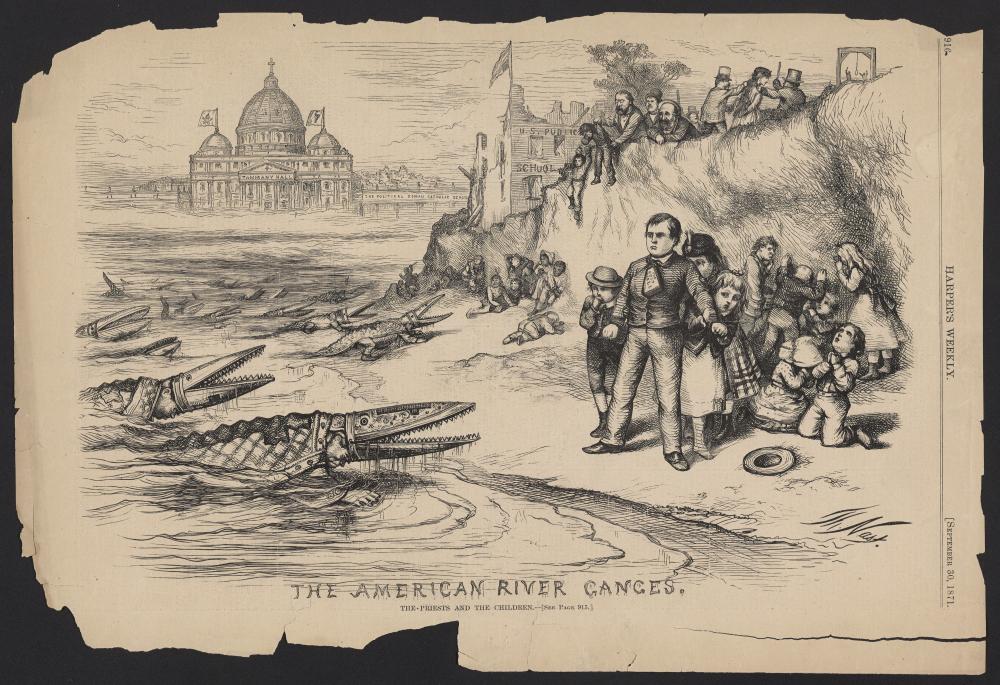Gratitude, Service, and the Vocation of a Good Counselor
Alan Sears and John C. Peiffer II*
After many recent months of excess stress and anxiety, attorneys can find solace and healing in a return to gratitude and the call to serve as a “good counselor.”
Even pre-pandemic, many attorneys experienced dangerously high rates of mental suffering, with sadness and stress escalating into anxiety and depression. These statistics were consistently confirmed in multiple studies over several decades.[1] Fortunately, attorneys can take steps to meaningfully shift course. Experts—in fields ranging from psychology to theology—confirm that an attitude of gratitude and meaningful volunteer and other service can address root causes of this mental suffering and alleviate some symptoms.
The facts tell the story: 37 percent of law students have diagnosable anxiety, 17 percent screen positive for depression, 43 percent report binge drinking at least bi-weekly, and 35 percent engage in drug abuse.[2] After law school, these students’ time is commodified into the billable hour, and for all too many the future is grim. Three in five will struggle with anxiety, and almost half will grapple with depression. One in twelve will consider suicide at some point in his or her career.[3]
Such suffering became even more prevalent and well known during the pandemic. In response, Harvard’s legal publication, “The Practice” dedicated its full March/April 2020 issue to “Lawyer Well-Being.” State lawyers’ assistance programs rolled out events from “We’re All in This Together”-themed coaching sessions to sobering presentations of Suicide Prevention Gatekeeper Training.[4] These training events may play an important role in grappling with the symptoms of the issues attorneys face. However, to truly break the cycle, attorneys need to treat the root causes.
As a key step in addressing the root causes of sadness and stress, attorneys must re-engage with the ideals of the legal profession and the calling to be good counselors. On a practical level, this can be done through the exercise of gratitude (which the Roman statesman and philosopher Cicero called the “mother” of all other virtues) and service.
Practicing gratitude means attuning ourselves to Divine Providence at work in our lives, so that we discern the countless gifts and blessings in the world around us, even in the face of trials and difficulties. We can cultivate a habit of gratitude through concrete practices such as reflecting on occurrences or persons for which we are thankful during a nightly examination of conscience, keeping a list of blessings in a journal, or simply sending a daily text to a loved one to express thanks.
Similarly, serving involves attuning ourselves to the needs of others and willingly deploying our gifts and talents (including our technical skills as attorneys) in response to these needs. As Christ himself taught, “If any one would be first, he must be last of all and servant of all.”[7] Here, too, a nightly examination of conscience to reflect on the ways in which one has served others, or failed to serve others, followed by concrete resolutions for how one will serve going forward, can help to cultivate a habit of Christian service.
Research shows that gratitude and service alleviate the root causes of suffering such as sadness and stress. One study explained this by demonstrating that gratitude helps reduce cycles of negative thought and introduces positive brain chemicals associated with the experience of happiness.[5] Similarly, studies confirmed that volunteer work, particularly when done out of a true desire “to serve others and do good,” is connected to improved mental and physical health.[6] In cases in which attorneys experience clinical anxiety, depression, and other forms of mental suffering, the practices of gratitude and service have been shown to effectively complement professional help, such as regular counseling and medication.[8]
Even more compelling than the research, however, is the clear call to service and gratitude contained in God’s word. Scripture teaches us that the fullness of life comes from thanking God and serving others. “Give thanks to the Lord, for he is good; his love endures forever,” the Psalmist writes in Psalm 106:1. “Each one should use whatever gift he has received to serve others, faithfully administering God’s grace in its various forms,” writes Saint Peter.[9] “And the King will say, ‘I tell you the truth, when you did it to one of the least of these my brothers and sisters, you were doing it to me!’” Christ tells the crowd in Matthew 25:40. The Catholic Church in Pope Leo XII’s encyclical Rerum Novarum (Of New Things), develops this theme further: “Whoever has received from the divine bounty a large share of temporal blessings…or gifts of the mind, has received them for the purpose of using them for the perfecting of his own nature, and, at the same time, that he may employ them, as the steward of God’s providence, for the benefit of others.”[10]
Suffering tells a story; it is a conversation. These statistics on suffering tell the story that attorneys, like all humans, are not meant to be reduced to instruments. The true calling of an attorney is not only to complete tasks with technical aptitude but to live with meaning and connect one’s work to a transcendent purpose. Incorporating gratitude—the process of identifying the good in the world around us—and service—attuning ourselves to the needs of others and the gifts we can offer to help them—can re-integrate the drive for meaning and daily pressures into a true vocation. By doing so, attorneys can begin to transcend the weight of sadness and stress and experience the fulfillment of being free to do more good in the world.
___
*Authored by Alan Sears and John C. Peiffer II
[1] Stress, drink, leave: An examination of gender-specific risk factors for mental health problems and attrition among licensed attorneys; Capitalizing on Healthy Lawyers: The Business Case for Law Firms to Promote and Prioritize Lawyer Well-Being; Jerome M. Organ, David B. Jaffe, and Katherine M. Bender, Ph.D., Suffering in Silence: The Survey of Law Student Well-Being and the Reluctance of Law Students to Seek Help for Substance Use and Mental Health Concerns, Journal of Legal Education, Vol. 66 No. 1 (Autumn 2016); Krill, Patrick R. JD, LLM; Johnson, Ryan MA; Albert, Linda MSSW (February 2016) The Prevalence of Substance Use and Other Mental Health Concerns Among American Attorneys. Journal of Addiction Medicine. Volume 10 - Issue 1 - p 46–52.
[2] https://thepractice.law.harvard.edu/article/capitalizing-on-healthy-lawyers/, citing Suffering in Silence: The Survey of Law Student Well-Being and the Reluctance of Law Students to Seek Help for Substance Use and Mental Health Concerns.
[3] Capitalizing on Healthy Lawyers: The Business Case for Law Firms to Promote and Prioritize Lawyer Well-Being, citing The Prevalence of Substance Use and Other Mental Health Concerns Among American Attorneys.
[4] Arizona Bar Association: Member Assistance Program; Kentucky Bar Association: QPR Suicide Prevention Gatekeeper Trainings.
[5] The Neuroscience of Gratitude and How It Affects Anxiety & Grief.; Gratitude Helps Curb Anxiety.
[6] Volunteering and health benefits in general adults: cumulative effects and forms. Volunteering may be good for body and mind; How Volunteering Can Help Your Mental Health.
[7] Mark 9:35.
[8] 1 Peter 4:10.
[9] How Gratitude Changes You and Your Brain.
[10] Rerum Novarum: Encyclical of Pope Leo XIII on Capital and Labor.
.png)




